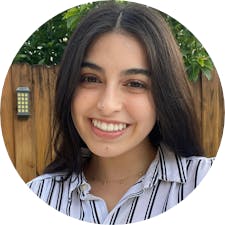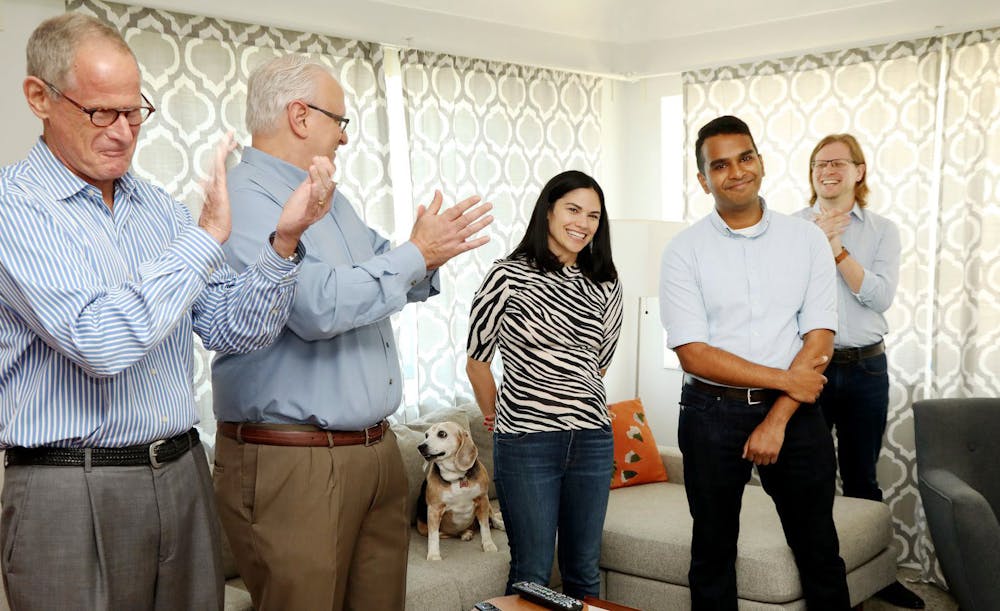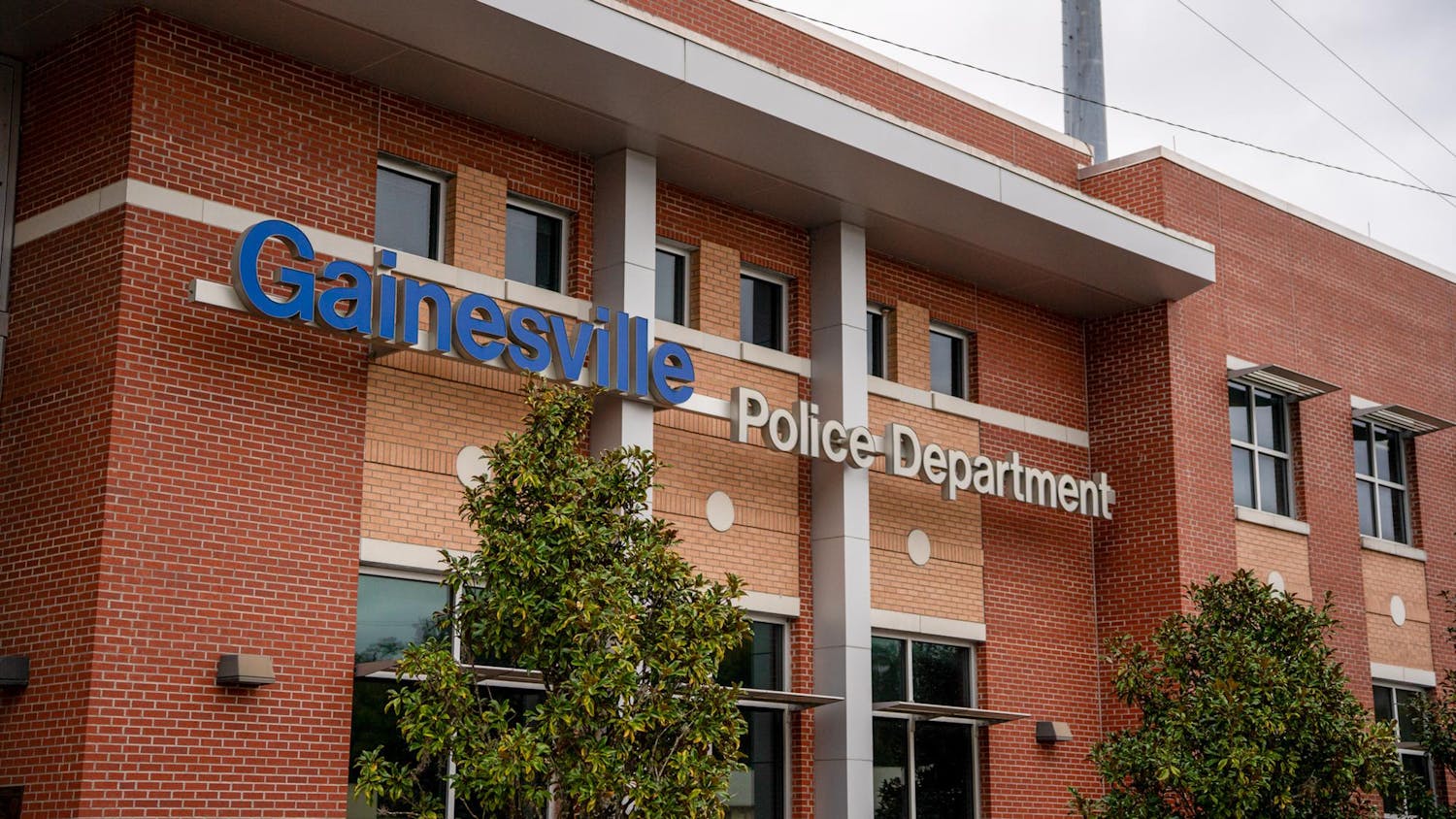While growing its ranking to become a top-five public university, UF’s faculty members have become locally, nationally and even internationally recognized for their expertise.
In the past two years, UF’s faculty has been called upon to share their expertise on a variety of current events and topics on respected media outlets such as NPR and the Washington Post. With nearly 5,000 faculty members at UF, some have been recognized for their research and work through notable awards from different organizations like the American Phytopathological Society and the NAACP Image Award.
Major topics faculty members have contributed to include COVID-19’s impact on life expectancy, the virus’ Delta variant, the humanitarian crisis and protests in Cuba and this year’s hurricane season.
Having faculty members speaking on national platforms contributes to the student experience and quality of education at UF, Steve Orlando, UF’s assistant vice president for communications, said.
“Our students know that they're getting a top quality education here with some of the best faculty in the world,” Orlando said. “But it also raises the stature of the university so that people elsewhere in the country know the kind of great work that's going on here at the University of Florida.”
UF’s national media prominence increased by 107% in the past year, according to a June Board of Trustees presentation. In 2020, UF rose to No. 4 in faculty expert share of voice, demonstrating a faster growth than any other top public university.
During the 2020 U.S. presidential election, UF political science professor Sharon Austin said she was bombarded with requests for interviews from media outlets all over the world.
Newspaper and broadcast news companies from Singapore, Korea, Australia, Canada, India and Japan seeked Austin’s input and expertise on the U.S. elections, which she said was both shocking and an honor.
Recently, she talked about the U.S. President Joe Biden’s April speech on Fox 4 Now Southwest Florida, explaining how it may have caught the interest of Floridians regarding education and police reform.
Austin said not only does the media presence of faculty enhance UF’s reputation, but it also makes professors who get recognized for their research feel their hard work is important and has a purpose.
Rolda Darlington, a UF political science doctoral candidate, said Austin has been her professor for over 20 years now, starting from her sophomore year as an undergraduate student to now as a doctoral student.
The 39-year-old said her professor is not only a great person who cares deeply for her students but is also an incredible scholar. She said working with her has been a beneficial experience.
Austin is part of the first all female editorial team for the American Political Science Review and will be the first African American lead editor for the journal in the 2023 to 2024 academic year. She is also one of the first African American editors for the University Press of Florida.
Darlington said it encourages her to see Austin as a fellow Black woman in political science who is widely recognized for her work while representing UF.
“It also makes me feel a sense of pride in my own work because I know I am working at a university that houses scholars like Dr. Austin, so all of it is an empowering feeling to know that a mentor of mine is a big deal across various outlets,” Darlington said.
Extension faculty member Lisa Krimsky is also included in the extensive list of UF faculty called to speak nationally. As a water resources regional specialized extension agent, she has often been called upon to provide insight on the red tide outbreak on Tampa’s coastline.
As one of the extension UF Institute of Food and Agricultural Sciences (IFAS) experts for harmful algal blooms in Florida, Krimsky was quoted in various media outlets, including the Smithsonian magazine, and she spoke live on the Weather Channel Friday about the red tide.
She said the opportunity to speak on national media platforms allows professors to share applied science research acquired at UF, explain it to a wider audience and push for real-world solutions.
Part of UF faculty’s mission is also to help foster a rich learning environment for students with their experiences and knowledge in their specialized areas.
UF journalism professors and investigative reporters, Kathleen McGrory and Neil Bedi won the Pulitzer Prize in local reporting on June 11 for their Tampa Bay Times investigation on the Pasco Sheriff’s Office’s intelligence-led policing program.
“As journalists, we definitely don't do the work for the awards, we do the work to shine light on programs and to help people who don't necessarily have a voice,” McGrory said. “But I will tell you that being recognized by the Pulitzer board is just a tremendous honor.”
Being an instructor who is still in a newsroom and knows the pressures of journalism today, she hopes her work inspires the next generation of journalists while providing her students with different internships and job opportunities within the industry.
“One of the highlights of every week is getting to interact with students and share my experience as a journalist, and kind of help them establish the building blocks of reporting that are going to be very useful in their careers,” McGrory said.
Sophie Feinberg, a 23-year-old journalism graduate, said McGrory has always been a resourceful mentor to her, both while being her student and later in her reporting career.
“I felt it was just invaluable to my learning process, inside and outside of the classroom, just encouraging me as a journalist and a person, and I can't say enough how much I appreciate it,” Feinberg said.
After the Surfside condominium collapse in Miami, UF design, construction and planning professor Zhong-Ren Peng was called to speak on numerous media outlets about the incident.
Peng, who is also director of UF’s International Center for Adaptation Planning and Design (iAdapt), said being able to share his knowledge and work on the dangers of coastal living brings it to the attention of policymakers and society. He also helped to place an op-ed in USA Today, emphasizing the importance of faculty research on these current issues.
“I think it’s the duty of the faculty,” he said. “It’s part of our service to the community.”
Peng also has spoken on various international media outlets in Brazil, Chile, China and other European countries regarding climate change issues on coastal cities and the Surfside complex collapse, elevating UF’s recognition to an international level.
Peng said he often references some of his own students’ work to inspire them to continue their journey and research in the field.
“We want to actually give a good example to our students because we are educating future scholars,” he said.
Contact Camila Pereira at cpereira@alligator.org. Follow her on Twitter @CamilaSaPereira.

Camila is a third-year journalism student and the administration reporter on the university desk. When she is not reporting for The Alligator, Camila is always listening to music and probably drinking honey milk tea.






